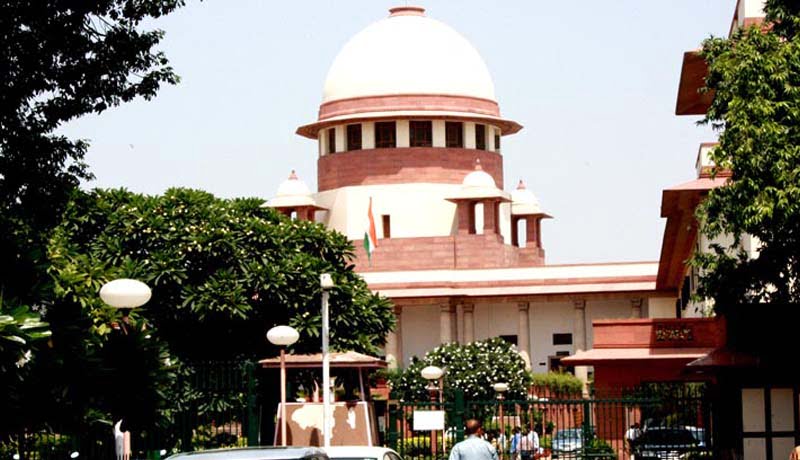HC cannot admit a Wealth Tax appeal without ‘Substantial Question of Law’: Supreme Court [Read Judgment]

Customs Valuation – Foreign Contribution – Income Tax Act – SC – Taxscan
Customs Valuation – Foreign Contribution – Income Tax Act – SC – Taxscan
While quashing an order passed by the Punjab and Haryana High Court, a two-judge bench of the Supreme Court on Tuesday held that having a ‘substantial question of law’ is a necessary requirement for filing appeal before the High Court under the Wealth Tax Act, 1957.
In the instant case, the appellant, a wealth tax assessee, has approached the Apex Court against the order of the High Court wherein the Court nullified the Tribunal order.
Allowing a special leave petition filed by the assessee, Justices R.K Agarwal and Ajay Manohar Sapre noted observed that Section 27-A of the Wealth Tax Act provides a remedy of appeal to the High Court against the order of the Income Tax Appellate Tribunal, is modeled on existing Section 100 of the Code of Civil Procedure, 1908.
“Indeed, as would be clear, the language of Section 27-A of the Act and Section 100 of the Code is identical. Both the Sections are, therefore, in pari materia. It is a case where Section 100 of the Code is bodily lifted from the Code and incorporated in Section 27-A of the Act with minor additions and alterations by following the principle of “legislation by incorporation".”
Relying on the Apex Court decision in the case of Santosh Hazari vs. Purushottam Tiwari (Deceased) by L.Rs., the bench noted that in that case, the Apex Court succinctly explained the meaning of the words “substantial question of law” and “question of law” and held that in order to admit the second appeal, what is required to be made out by the appellant being sine qua non for exercise of powers under Section 100 of the Code, is existence of “substantial question of law” arising in the case so as to empower the High Court to admit the appeal for final hearing by formulating such question. In the absence of any substantial question of law arising in appeal, the same merits dismissal in limine on the ground that the appeal does not involve any substantial question of law within the meaning of Section 100 of the Code.
The bench clarified that the above interpretation would apply to Section 27-A of the Act mainly because of the following reasons.
- Both Sections provide a remedy of appeal to the High Court;
- Both Sections are identically worded and in pari materia;
- Section 27-A is enacted by following the principle of “legislation by incorporation”;
- Section 100 is bodily lifted from the Code and incorporated as Section 27-A in the Act;
- Since both Sections are akin to each other in all respects, the appeal filed under Section 27-A of the Act has to be decided like a second appeal under Section 100 of the Code.
Read the Full Text of the Judgment Below


